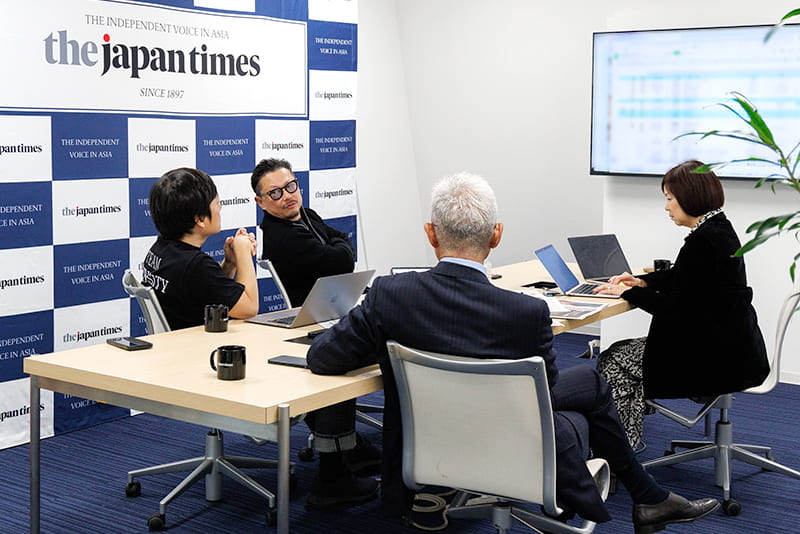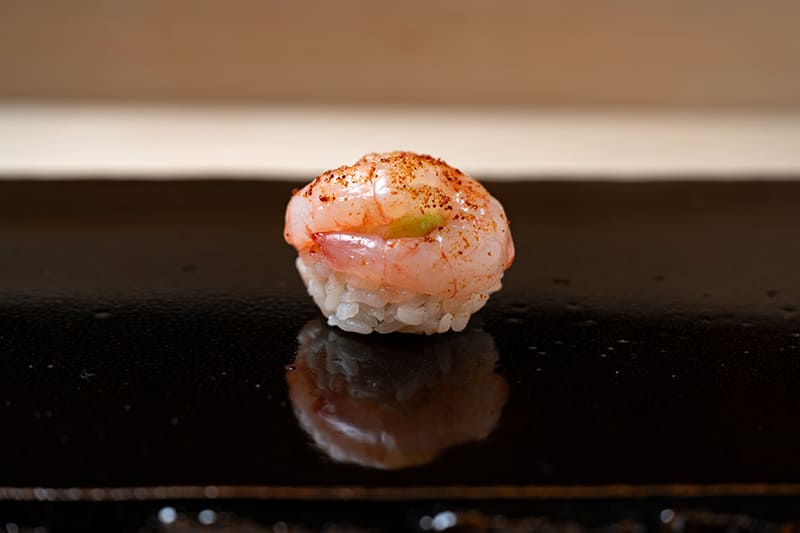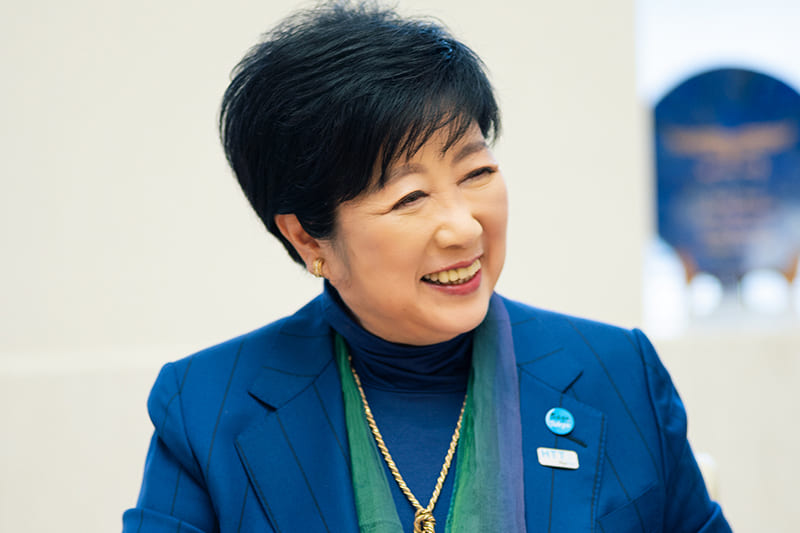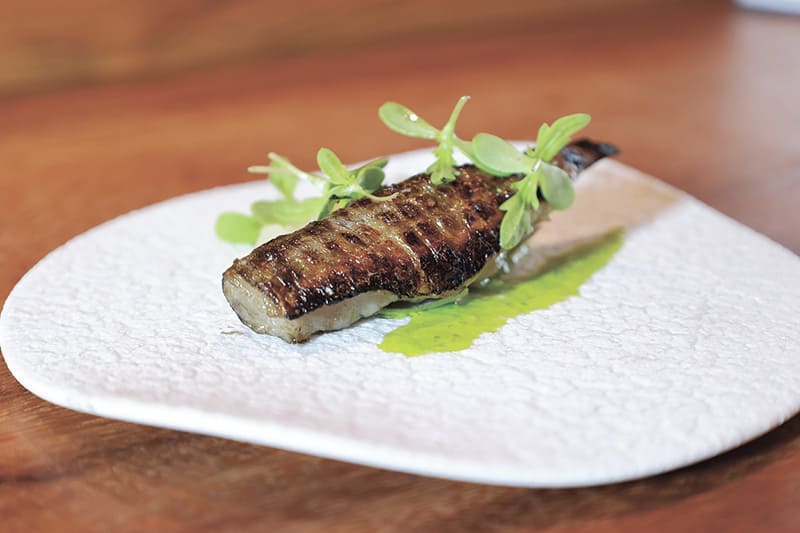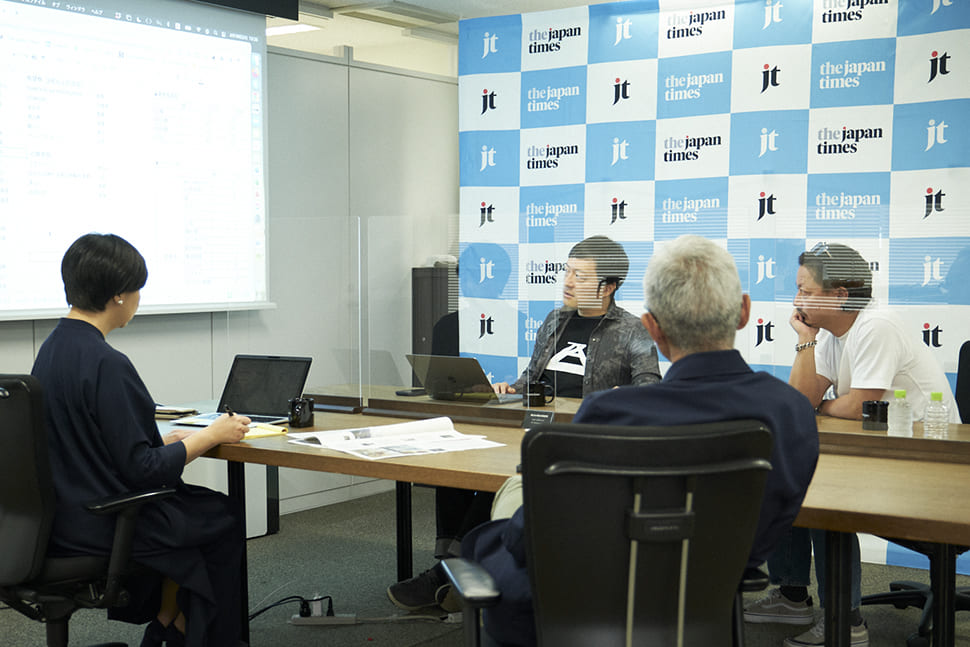June 23, 2023
Tokyo’s famed Edo food traditions still evolving
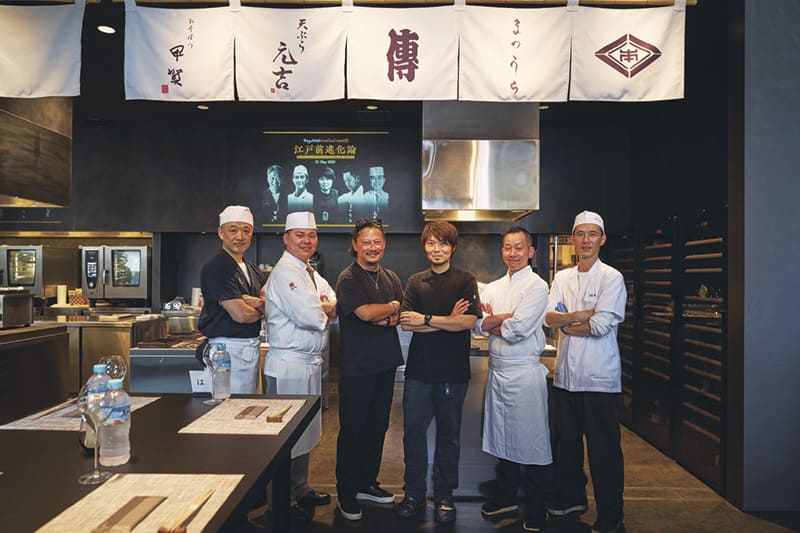
“Evolution of Edomae, Ten-Hands Dinner,” a special event in the Tokyo Metropolitan Government’s food festival “Tokyo Tokyo Delicious Museum 2023,” was held on May 21 at Social Kitchen Toranomon. Its producer, Naoyuki Honda, the CEO of Leverage Consulting Co. Ltd., said, “I invited people to enjoy traditional Japanese cuisine and learn about and experience how it has evolved over time.”
The Edo Period (1603-1867) was a time when the culture of eating out was at its height. The big four foods of the period — sushi, soba, tempura and grilled eel, still at the center of Japan’s food culture today — were served at yatai food stalls as casual, easy-to-pick-up food for the common people. Edomae cuisine, which has evolved over the centuries since the Edo Period, was served at the event.
A yatai-like open kitchen was set up, and five famous Tokyo restaurants carefully selected by Honda — Den, Sushi Matsuura, Tempura Motoyoshi, Osoba no Koga and Hashimoto — served their dishes in the sophisticated venue. Ukiyo-e paintings depicting Edo Period scenery and food culture by Utagawa Hiroshige and others were projected on a screen.
Den, in the Jingumae area of Shibuya Ward, won first place in Asia’s 50 Best Restaurants in 2022. The owner, Zaiyu Hasegawa, said he strives to create new dishes while respecting the seasonality and traditional flavors of the past. One of the dishes Hasegawa offered was Den monaka, filled with dried persimmon, miso-marinated foie gras and iburigakko pickles.
Osamu Matsuura opened his own sushi restaurant, Suhi Matsuura, in Minato Ward’s Shirokane-Takanawa area after years of experience abroad, expressed the evolution of Edomae sushi by arranging the seasonings used in the Edo Period. He served tuna brains, monkfish liver rolls with dried gourd, otoro (superfatty tuna) nigiri sushi on vinegared rice, which was not available in most of the Edo Period, kohada (shad) nigiri sushi, and an akamutsu (rosy seabass) donburi rice bowl.
Tempura Motoyoshi in Shibuya’s Ebisu area has been awarded a Michelin star for 13 consecutive years since 2011. The owner, Kazuhito Motoyoshi, said that in his technique, some ingredients are cooled down a bit to allow the taste to be appreciated. Although the conventional wisdom is that tempura should be eaten hot, Motoyoshi says that sometimes it is better to remove the heat to enjoy the flavor of the ingredients. For this reason, he uses a machine called Kitakaze, which he developed himself, to lower the temperature of the tempura before serving it to guests.
Hiroshi Kouga, the owner of Osoba no Kouga in Nishiazabu, Minato Ward, who studied the cooking techniques of Edomae soba and was named a Bib Gourmand in the Michelin Guide, served lime-like sudachi soba, his restaurant’s standard dish, and caviar soba. The buckwheat flour used for top-quality Sarashina soba was given to lords in the Edo Period.
Shohei Hashimoto is the fourth-generation owner of Hashimoto, which was established in 1947 in Yaesu, Chuo Ward. He aims to develop eel cuisine while addressing resource issues, such as holding consultation meetings to think about the future of eels. Hashimoto also arranged the seasoning with sanshō miso — sanshō, meaning “mountain pepper,” was a popular Edo seasoning — providing an enjoyable experience of Edomae eel.
“Japanese food is highly regarded around the world. Edomae cuisine is traditional but has evolved to the present day,” Honda said. “I hope this event will be an opportunity for people to rethink and learn about the food culture in Tokyo.
伝統を守り進化を続ける東京の食文化。
多様な食文化が集まり発展し、独自の食文化が生まれる東京。2023年にはミシュランガイド上位10位以内に東京都のレストランが4店舗ランクインするなど、世界から高い評価を受けている。東京の食文化と歴史を体感し、世界に発信することを目的に「江戸前進化論-Evolution of Edomae, Ten-Hands Dinner」が5月21日に「Social Kitchen TORANOMON」にて開催された。このイベントは、本田直之氏(レバレッジコンサルティング株式会社 代表取締役CEO)がプロデューサーを務め、日本が誇る最高レベルのシェフたちが集結した。イベント会場では、屋台をイメージしたオープンキッチンが設置され、本田氏が厳選した五つの銘店、「傳」、「鮨まつうら」、「天ぷら元吉」、「おそばの甲賀」、「はしもと」が暖簾を下げた。江戸時代から数百年の時を経て進化を遂げた江戸の四大名物料理、寿司、蕎麦、天ぷら、鰻。古から伝わる日本の伝統料理が、新しいアイデアや創造性によってさらに進化している様子を体験することができる特別な一夜となった。
Return to Sustainable Japan Magazine Vol. 25 article list page

